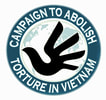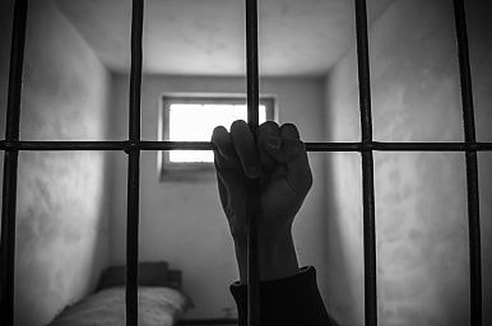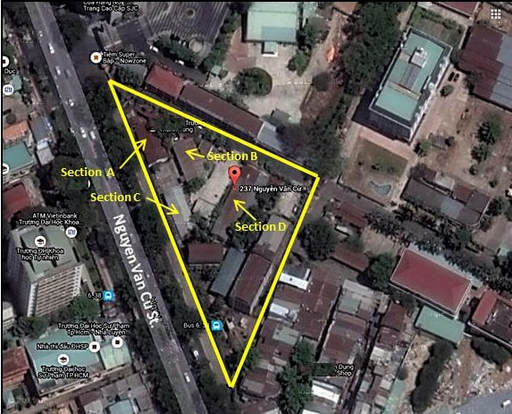Prisoners of Conscience:
Abuses in Police Custody and Pre-Trial DetentionThe detention of many political and religious dissidents in Vietnam starts with their arrest and abduction by police, and then with their disappearance.
A. Incommunicado Detention
B. Enforced Disappearances C. Solitary Confinement D. Forced Confessions E. Deaths In Police Custody Prisoners of conscience prosecuted for national security crimes are not eligible to be released on bail. They are subjected to prolonged pre-trial detention during investigation and interrogation, which usually lasts at least a year, and often more. During this time many dissidents are held in isolation, prohibited from contact with their families or legal representation.
While Vietnamese law limits pre-trial detention for investigation of “less serious” criminal offenses to three months (extendable to five months), political and religious detainees indicted on national security charges can be detained for investigation up to 28 months and more if the procuracy secures approval for additional periods of detention and investigation.[1] Examples of prolonged pre-trial detention for prisoners of conscience held on national security charges include human rights lawyer Nguyen Van Dai, who was held in pre-trial detention for 27 months; blogger Nguyen Huu Vinh (aka Anh Ba Sam), held for 22 months; and pro-democracy activist Luu Van Vinh, who was held for 23 months. |
A, Incommunicado Detention and Denial of Access to CounselPrisoners of conscience are routinely held completely incommunicado during the pre-trial investigation period. They are denied access to their families and legal representation during the investigation phase on the grounds that they have been charged with national security crimes.[2] While they are detained incommunicado, prisoners of conscience can be subjected to intense physical and psychological torture and abuse in order to extract information and coerced confessions from them. (Read more.)
B. Enforced DisappearancesIn many cases, authorities refuse to inform families of prisoners of conscience where the prisoner is being held, which causes suffering and distress to the prisoner and their families and in most cases constitutes an act of torture or cruel, inhuman and degrading treatment.[2] Former prisoner of conscience Nguyen Van Dai (Dieu Cay) was subjected to several periods of incommunicado detention, the longest of which lasted 17 months, (Read more.)
|
C. Solitary Confinement and Pre-Trial IsolationDuring the investigation period, most prisoners of conscience are held in isolation, either in solitary confinement or with a cellmate (sometimes referred to as “antennae”), whose duty is monitor and report on them for prison authorities. (Read more.)
D. Forced ConfessionsDuring pre-trial investigation and interrogation, many detainees are subjected to torture and other abuses by law enforcement officials seeking to extract information and forced confessions from them. (Read more.)
E. Deaths of Prisoners of Conscience in Police CustodyThe acts of physical torture inflicted on prisoners of conscience in order to extract their confessions have led to deaths in police custody. Members of religious and ethnic minorities make up many of the detainees who die while in police custody, particularly in remote rural areas where it is harder for international media or human rights defenders to document cases. (Read more.)
(Excerpted from "Torture in Vietnam 2018: Joint NGO Report to the UN Committee Against Torture," November 2018.)
|
End Notes:
[1] Articles 88, 119, 120, and 121, Criminal Procedure Code, No. 19/2003/QH11 of November 26, 2004. [2] The Campaign to Abolish Torture in Vietnam found that all but one of the 60 former prisoners of conscience they interviewed for their 2014 report were held completely incommunicado during the pre-trial investigation period. More than half of those interviewed were also held in isolation cells during the initial investigatory part of their detention. All 18 of the former prisoners of conscience interviewed by Amnesty International for its 2016 report were subjected to prolonged periods of incommunicado detention, the longest lasting over two years. Campaign to Abolish Torture in Vietnam, “Vietnam: Torture and Abuse of Political and Religious Prisoners," 2014, http://www.stoptorture-vn.org/torture-report.html ; Amnesty International, “Prisons within Prisons: Torture and Ill-Treatment of Prisoners of Conscience in Viet Nam," July 2016. [3] Between 2001 and 2014, the UN Working Group on Arbitrary Detention (WGAD) concluded in 63 cases submitted to it regarding Vietnam that individuals were arbitrarily detained and charged with national security crimes under Criminal Code (1999 version) articles 79, 80, 87, 88, 89, and 258. Campaign to Abolish Torture in Vietnam, “Vietnam: Torture and Abuse of Political and Religious Prisoners," 2014. [4] An enforced disappearance is defined under international law as “the arrest, detention or abduction of an individual by state authorities or their agents followed by a refusal to acknowledge the deprivation of liberty or by concealing the fate or whereabouts of the person, which places the person outside the protection of the law.” Convention against Enforced Disappearance, adopted September 23, 2005, E/CN.4/2005/WG.22/WP.1/Rev.4 (2005), art. 2. [5] Namely, the 2015 Criminal Code (Article 374), the 2015 Criminal Procedure Code (article 10) and the 2015 Law on Organization of Criminal Investigation Agencies (Article 14). |


